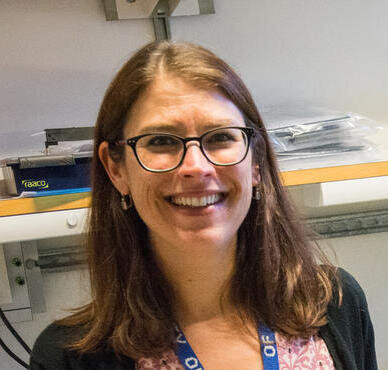VIDEO - Webinar series: Let's Dive into the Atoms! - Large scale facilities: neutrons for life science research, with Zoe Fischer


VIDEO - Webinar series: Let's Dive into the Atoms! - Large scale facilities: neutrons for life science research, with Zoe Fischer
Neutrons are powerful probes for the study of biological samples as they are very sensitive to hydrogen(H)-rich materials and can discriminate between isotopes of the same element. Due to this property of neutrons, they can be used to observe hydrogen and it’s isotope, deuterium in materials. To enable such studies in soft matter and life science, access to full or partially deuterium-labeled molecules is critical to a successful and meaningful neutron experiment. Included in the talk will be information on how to access large-scale facilities and their support laboratories, with specific information on where to find information, proposal preparation, and a specific example based on an operating facility. The second part focuses on an example of neutron studies being fundamental to the study of hydrogen bonds and water molecules in inhibitor binding to a cancer-metastasis marker.
Speaker: Zoe Fischer, European Spallation Source (ESS), Lund Sweden
This webinar is part of LINXS webinar series, Let's Dive into the Atoms. The aim is to create a fundamental understanding of how you as a researcher can use x-rays and neutrons in your own research.
Abstract
Construction of the European Spallation Source in Lund, Sweden, is nearing completion with a goal of first neutron production in 2023 and first user operations in 2024. Once completed, ESS will be the most powerful neutron source in the world, with a state-of-the-art suite of instruments that will be available to users for performing their research. ESS will form part of a world-leading science hub in Lund and will help to solve a range of scientific and technological problems. ESS will enable and support multi-disciplinary research activities in the fields of life sciences, materials science, energy, environment, cultural heritage and fundamental physics. ESS will not only provide neutron scattering instruments, but also access to support laboratories and assistance with sample preparation and characterization.
Neutrons are powerful probes for the study of biological samples as they are very sensitive to hydrogen(H)-rich materials and can discriminate between isotopes of the same element. Due to this property of neutrons, they can be used to observe hydrogen and it’s isotope, deuterium in materials. To enable such studies in soft matter and life science, access to full or partially deuterium-labeled molecules is critical to a successful and meaningful neutron experiment. Included in the talk will be information on how to access large-scale facilities and their support laboratories, with specific information on where to find information, proposal preparation, and a specific example based on an operating facility. The second part of the talk will focus on an example of neutron studies being fundamental to the study of hydrogen bonds and water molecules in inhibitor binding to a cancer-metastasis marker.
Biography
Zoë was born and raised in South Africa where she completed her undergraduate studies at the University of Stellenbosch in biochemistry and physiology. In 2000 she moved to Gainesville, Florida and, after working as a research lab assistant, enrolled in the graduate program at the University of Florida where she completed her doctoral studies in 2006. She did her postdoctoral work at Los Alamos National Lab (LANL) in New Mexico until 2009 where she became a permanent staff member 2010. In this role she was operating the neutron protein crystallography beamline, support lab, while conducting independent research. In 2014 she moved to Lund, Sweden to join the European Spallation Source, where today she leads the group for Deuteration and Macromolecular Crystallization. Zoë’s research interests are in interdisciplinary studies for structural enzymology and combining X-ray, electron, and neutron protein crystallography for the understanding of the molecular details of ligand binding for improved structure-based drug design.
